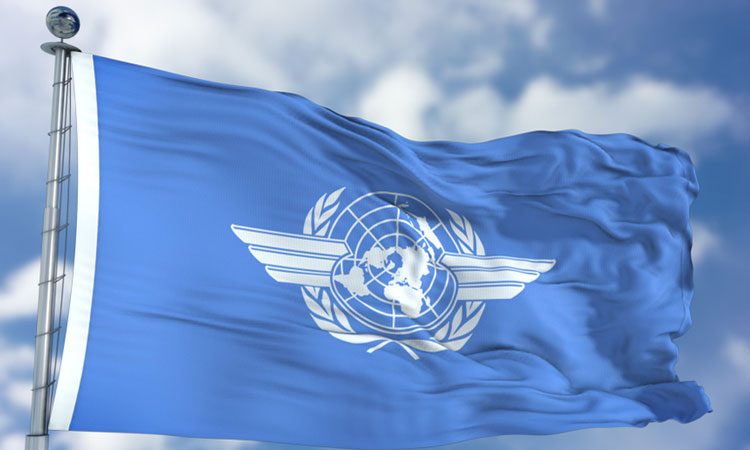Investment and commitment key to sustainable air travel in America and Caribbean
- Like
- Digg
- Del
- Tumblr
- VKontakte
- Buffer
- Love This
- Odnoklassniki
- Meneame
- Blogger
- Amazon
- Yahoo Mail
- Gmail
- AOL
- Newsvine
- HackerNews
- Evernote
- MySpace
- Mail.ru
- Viadeo
- Line
- Comments
- Yummly
- SMS
- Viber
- Telegram
- Subscribe
- Skype
- Facebook Messenger
- Kakao
- LiveJournal
- Yammer
- Edgar
- Fintel
- Mix
- Instapaper
- Copy Link
Posted: 14 August 2018 | International Airport Review | No comments yet
Speaking to the Directors General of Civil Aviation in the UN Agency’s North American, Central American and Caribbean (NACC) Region, ICAO Secretary General Dr. Fang Liu, has emphasised that concrete financial and political commitments are urgently needed to safeguard the important contributions of tourism and aviation growth to their States’ sustainable development.


The meeting was opened by Dr. Liu and Ms. Thao Pham, Canada’s Associate Deputy Minister of Transport.
Dr. Liu’s remarks were part of a wider address on the near-term requirements to ensure a healthy future for the region’s air transport systems.
Additional points she covered stressed the prioritised implementation of ICAO’s global safety and security plans, the importance of capacity-building and investment in aviation infrastructure, and investor and donor expectations for stable, dependable regulatory frameworks.
“It is presently forecast that air transport and tourism will support no less than 9.7 million jobs and US$430 billion dollars in Caribbean GDP alone by 2034,” the Secretary General declared, noting as well that the achievement of these targets would be economically transformative for local States.
ICAO’s NACC region comprises 21 ICAO Member States in total, from Canada in the North to Panama in the South, and includes 19 Caribbean territories of France, the Netherlands, the United Kingdom and the United States.
Dr. Liu also reiterated ICAO’s commitment to provide critical support to the Region’s States through its NACC Regional Office, and through its ‘No Country Left Behind’ (NCLB) capacity-building initiative, calling on the NACC States to continue building on the tremendous achievements they have realised over recent years.
Aviation safety was highlighted as an area of exemplary regional achievement, especially in regards to the mitigation of operational risk through Safety Management System and State Safety Programme (SMS/SSP) implementations, the development of a Regional Safety Oversight Organisation (RSOO) platform to optimise safety oversight capacities, and efforts toward the development of Regional Accident and Incident Investigation Organisations.
The Secretary General explained: “As global safety performance continues to improve, aided importantly by our cooperative efforts under the ICAO Global Aviation Safety Plan (GASP), ICAO has begun to focus greater attention on some specific challenges. One of these is to address the operational risk under the SMS/SSP framework described by the newly amended Annex 19.” Moreover, she thanked the Corporación Centroamericana de Servicios de Navegación Aérea (COCESNA) for the active role it has played in the development of the region’s RSOO collaborative platform.
The Secretary General further encouraged the region’s States to enhance the capacities of their Civil Aviation Authorities (CAA). She said: “It is essential that your authorities have the financial and management autonomy to do their work properly, as well as the ability to attract, recruit and retain qualified technical personnel to regulate our ever-expanding global system.”
She pledged ICAO’s commitment to enhance local personnel skills through its Next Generation of Aviation Professionals (NGAP) programme, and Global Aviation Training (GAT) office, and highlighted the importance of the upcoming ICAO World Aviation Forum (IWAF) to help foster new strategic partnerships for aviation development.
Taken together, these efforts are expected to enhance the stability of the aviation regulatory framework, and open the door to greater private investment which is ultimately key to guaranteeing the sustainability of air transport in the region.
Dr. Liu said: “Investors will be more comfortable working with States which have a stable regulatory framework, and on projects where the return on investment is very clearly outlined.”
Related topics
Aeronautical revenue, Economy, Regulation and Legislation, Sustainability, Tourism
Related organisations
Corporación Centroamericana de Servicios de Navegación Aérea (COCESNA), International Civil Aviation Organization (ICAO), Regional Safety Oversight Organisation (RSOO)


















